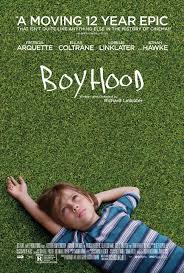 The truth of this title is self-evident to those for whom writing is an important part of life, whether as vocation or avocation. They know. Others might accuse me of hyperbole. Everyone gripes about how difficult their work is for them. How hard can it be to sit on your duff all day and string together a bunch of words that make sense?
The truth of this title is self-evident to those for whom writing is an important part of life, whether as vocation or avocation. They know. Others might accuse me of hyperbole. Everyone gripes about how difficult their work is for them. How hard can it be to sit on your duff all day and string together a bunch of words that make sense?
Harder than you’d think.
Writing a quality book, play, screenplay, short story, poem, article, or other piece of literature is, as we say in Boston, wicked hahd. Legendary sports columnist Red Smith, when asked whether churning out a daily column was hard work, replied, “Why, no. You simply sit down at the typewriter, open your veins, and bleed.”
Garbage, on the other hand, spews forth with a lot less resistance and little or no shedding of the crimson.
Writing blog posts can be the easiest writing task or the hardest. It’s easy if all the writer is interested in is dumping random thoughts with no focus on accuracy or the quality of the prose. If you’ve read many blogs, you know exactly what I mean. No disrespect intended, but those are the literary equivalent of the old SNL Colon Blow cereal. As long as there’s mountains of output (words), that’s good enough.
The hard part is the unrelenting self-imposed “deadlines”. I’m committed to putting out a post every Tuesday for this blog and every Saturday for Limping in the Light.
In spite of those deadlines, I always want to put my most literate foot forward. (I think it’s the left.) One thoughtless typo and I look like a moron. Cranking these posts out twice a week, I don’t have a lot of time to obsess over editing. (I do have a life.) Anyway, self-editing is usually a futile effort. Because my schedule might warrant it on any particular week, I confess to have pushed out posts prematurely. As a result… mistakes were made.
These factors provoke all sorts of qualms at every stage of the post creation process. The blank screen, the self-doubt, the self-critique, the hesitance to expose my work (and by inference, myself) to the world all conspire to make the process more agonizing than it should be.
Hopefully readers will show some grace as they read these hastily scribbled sentiments, especially those readers who are interested in purchasing any of my writing. This shouldn’t be cause for concern. There are enough poorly written books and movies that it’s clear (1) there are a lot of poor writers out there, and (2) the vetting process is imperfect. I’d rather not rely on that state of affairs, but until I have nothing to do except write a couple of blogs – nice work if you can get it – I’ll simply slog along as well as possible given the circumstances. Posts might be short and they might be of varying quality.
Thank you for your understanding.










